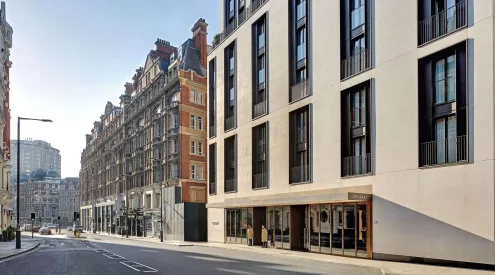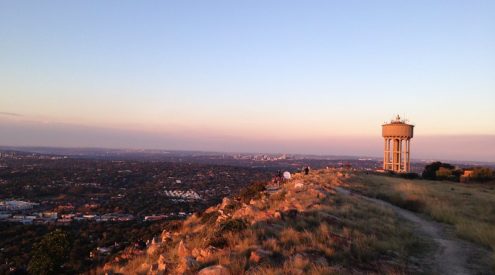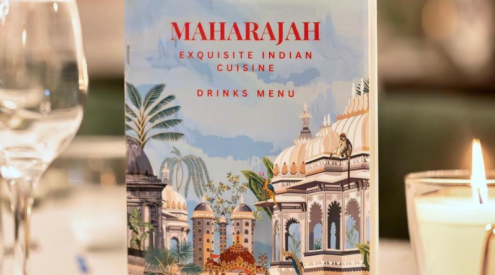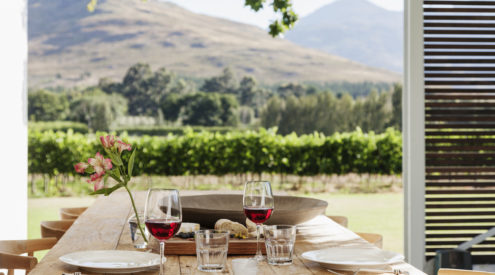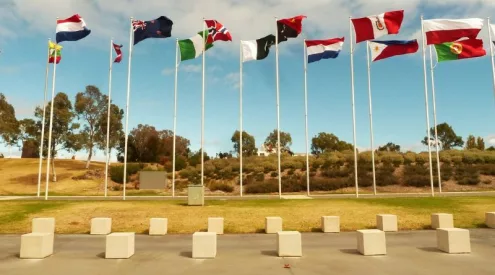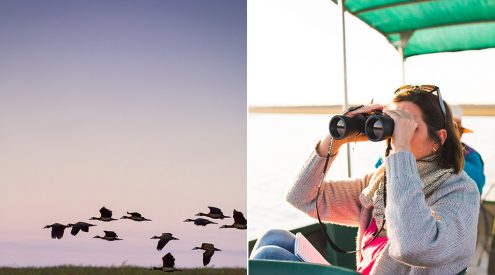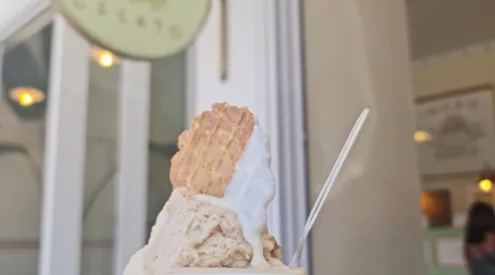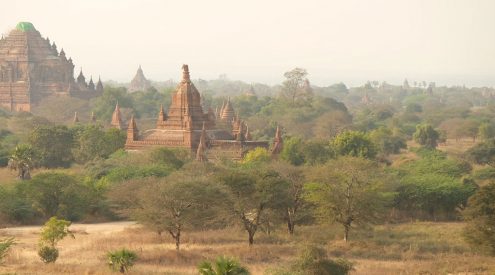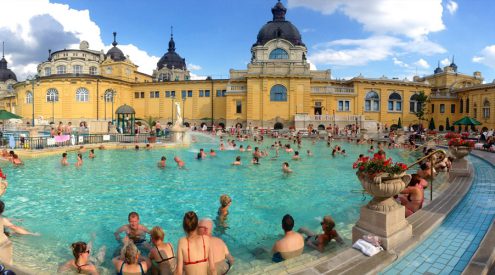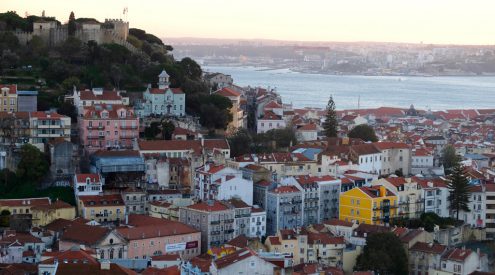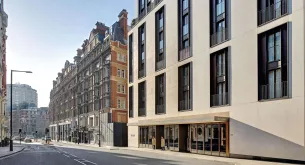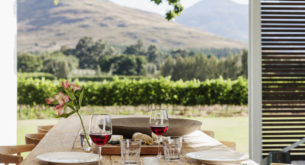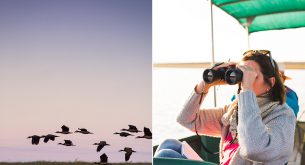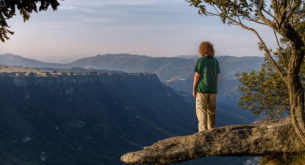An extract from the book My Years of Beds.
Beds 33 and 34
Leaving the Adriatic behind, I head inland into Bosnia and Herzegovina, then out of Bosnia and Herzegovina, then back into Bosnia and Herzegovina. The world is a bit of a political jigsaw puzzle here. The road leads through a huge fertile valley, ‘Little California,’ they call it, where trees are dotted pink with peaches and hothouse tomato vines sag under their fruit. The road leads out of the valley into an alpine scene with – to my eyes – the unusual addition of mosques and minarets. The East has moved onto centre stage here, the Christians replaced by the people of Islam. A brown road sign indicates a sight worth seeing. A church, yippee! Being a good little tourist, up I go to view my first tourist attraction in Bosnia and Herzegovina.
A man with a fez squats on the wall, chatting to an unseen someone below.
“˜May I enter?’ I ask, ever so politely.
He shakes his head. ‘Yes,’ he says, and continues to shake his head.
Confused by this contradiction I ask again.
“˜Yes, please enter.’ He says, shaking his head.
Is the man unsure, or not in a position to say either yes or no, but too polite to say so? I stare at him, not too sure what to do next. Then it hits me, I am in Turkish cultural – well, sort of – territory where nodding the head means no, and shaking means yes. With that, I set foot in my first mosque – but forget to take off my shoes. His slight wince says it all: I am stepping all over his culture with my blundering ignorance. To minimize the damage, I remain rooted to the spot, letting my gaze wander over the light-filled space; its carpet-covered floor; intricate geometric shapes decorating the walls; and the delicate, pointed arches of the doorways; and I realize that I am entering a country where I have more to learn than just a new language.
I reach Sarajevo once again without a place to stay. My search for a bed leads me to the old town. A burnt-out helicopter lies rusting in the grounds of an old mansion. The façades of the buildings on both banks of the Miljacka River all bear the rat-tat-tat scars of gunfire. I can imagine the noise and dust of battle.
‘Where is the blood?’, the question just pops into my head.
‘Twit … it was more than ten years ago.’
But the wounds of the buildings are so fresh it could have been yesterday. There are still imprints of tank treads in the buckled pavement, and bombs make strange interior decorators; crumpled roofs lie in buildings, displaying their rusting sides through shattered plaster and broken windows. Graffiti and billboards grow like ivy on these ruined buildings. A kitten mews plaintively from the bombed-out rubble of an old cinema, where I see a woman drawing water from a public tap. She is followed by a toddler in bright red dress, they live somewhere in this broken building.
Stepping over an invisible boundary, I enter the Turkish Quarter. The modern glass-fronted shops are replaced by hundreds of tiny stalls that spill copper and carpets onto the pale cobbled streets. On a street corner, brooms and buckets stand next to a small fountain where tourists fill their water bottles and locals draw water for the coffee that is carried from shop to shop on small trays. In the deepening dusk, the graceful arches and domes of the Gazi Husrev-beg Mosque form a quiet centerpiece to the teeming streets that surround it. The spotlit minaret is a glowing needle against the indigo sky. At the mosque, men take off their shoes and wash their feet before entering to pray. Beautiful Bosniak women with porcelain skin – their hair in high buns, hidden from view by tightly wound scarves – drift by in serene elegance. The sky deepens to black and the streets lose their lustre as the shops close for the night, hiding their wares behind heavy wooden shutters.
I trawl from bed and breakfast to guesthouse to hotel. The Sarajevos are friendly, but apologetic; not to book in advance during the summer season is a bit of a gamble. But they try their best to help; one owner makes a few calls on my behalf. After a bit of Bosnian chit-chat on the phone, he gives me a small hand-drawn map and a name with an exotic ring. Zlatan, a guesthouse owner, has a room available.
Zlatan is a perfect textbook example of tall, dark and handsome, with the added attraction of being wise. On hearing that I am from South Africa, his response is, ‘that must be such a cool place to live.’
We fall into easy conversation. He was twelve when the shells and bullets started blazing down from the mountains. Zlatan’s father reassured his family, saying that those were their troops, and could not possibly be shooting at them. He believed it must be a military exercise; it didn’t take them long to find out how wrong he was.
When a bomb dropped on their family home, they took refuge in the parking garage that the Wish Mobile is now staying in. Looking at the grey cold space, I visualize hundreds of terrified and confused families huddling together, trying to make sense of a senseless situation. Zlatan is very matter of fact when he mentions that they were lucky to be in this particular parking garage, as they had access to water. People sheltering in other garages had to venture out to find water, and then were shot by the snipers, who made daily sport of killing Sarajevos.
Zlatan carries none of the shame and guilt of the war that I have noticed in the older generations. The war was something that happened to him; then he was sent to Norway as a refugee; and as a result, he speaks fluent Norwegian. The remainder of his family fled to various parts of the world to earn money, which they sent back to the family patriarch, who used it to rebuild their lives. The bombed-out family home is now a 12-bedroom guesthouse, where I am happy to take up residence in a small attic room with a view over the minarets of the Turkish quarter.
Across the road of my guesthouse, the heat of the morning has convinced a fat man with pale skin to remove his shirt. Sitting on a typist chair that has lost its back, and looks soon to lose the battle of supporting the pale fat man, he holds court in front of his shop, which stocks what look like gutters and roofing material. People pass, some with a greeting, some stop for a brief exchange, some sit and chat for a while. From the terrace of a small café, I watch the locals going through their early morning rituals over a breakfast of a fizzy lemon drink and a burek – a strange coiled pastry filled with spicy meat. The shop owners fuss over their wares while the coffee waiters rush in and out of the myriad little stores, delivering tiny cups of coffee with tall glasses of water. They carry these on large trays balanced on one hand stretched high above their heads, while they duck and dodge through the crowded streets, never spilling a drop. Men sit outside their tiny shops sipping coffee and smoking the first or fourth dark brown cigarette of the day, while young mothers tend their babies. In the Turkish quarter everything happens on the street – not surprisingly, some shops are no bigger than a small closet.
Setting off to explore Sarajevo, I find myself in a small shopping street in the more modern part of town. Here, the traffic chokes the three-lane streets, while the sidewalks are washed by the shopkeepers. Small fountains are everywhere, and on every patch of open ground Muslim headstones with turban tops stand askew in the grass.
‘Are there really corpses under the grass?’
The disturbing thought brings me to a halt in front of a shop window, where my focus moves through my reflection and onto a freshly skinned sheep, its head intact with milky blue bulbous eyeball and teeth bared in a ghastly grimace. Shuddering involuntarily, I quicken my step to the open-sided market where I can view the far more comforting displays of fresh fruit and vegetables. As a good city girl, I am used to seeing my meat prettily cut into rosy slices, topped by a sprig of parsley and hygienically plastic wrapped for my shopping comfort, and graves are usually in neat rows situated way out of town.
In the late afternoon I make my way back to the Turkish quarter, where the fat, now sun-roasted, red man has been joined by an accordion-playing friend. The melancholy sounds of Bosnian folksongs fill the small alley, and as the fat man sings in a despair-drenched voice, he slowly acquires an audience that pay him in beer.
At the guesthouse, Halla, an unreal redhead from Norway, introduces herself and suggests we have dinner together. She wants a salad, but I am following Zlatan’s recommendation and am on the search for chivapcici. He directs us to a small corner restaurant where we sit at a pavement table lit by the overhead street light. Halla sticks to her salad plan, and I go all out for the chivapcici. The dish consists of flat squares of highly spiced, garlicky minced lamb placed inside chewy flat bread that has been fried in the mince fat. This is accompanied by chopped raw onion and whole fresh chilies, and to wash it down – a glass of natural yoghurt. A Sarajevo specialty that comes with heartburn guaranteed. Back at the guesthouse the fat man and his friend are still singing, and have acquired a whole collection of empty beer bottles.
Halla has the room opposite mine on the top floor of the guesthouse, and as we are the only two up here, I take the opportunity to leave my door open and throw open the windows to allow a much-needed cool breeze to blow through my little kingdom. Working at my computer, I sense someone behind me. Halla has slipped into something more comfortable, and leans against my doorpost in what must surely be a seductive manner. For someone even just slightly more interested than I, an unspoken question hangs in the air.
I duck the silent question with feigned innocence.
“˜I was just cooling the room, is the draft disturbing you?’
Enough said. She gives me a slow grin, turns and leaves.
For more from My Year of Beds visit www.ajahnel.com

